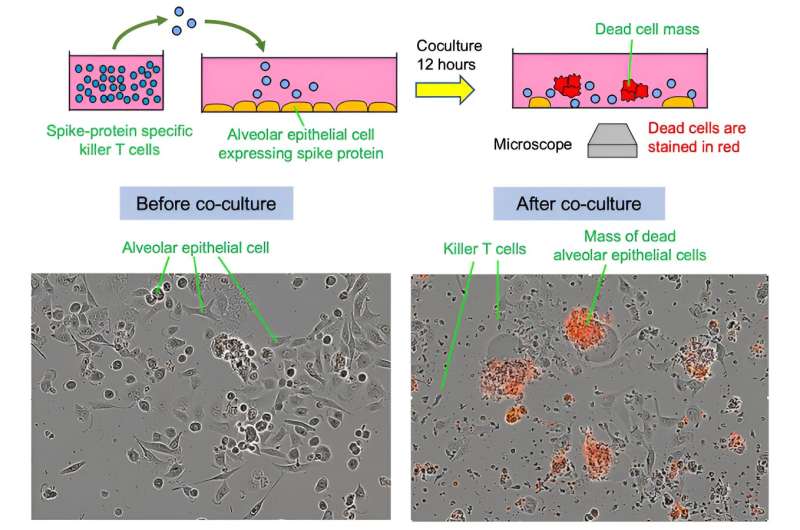This article has been reviewed according to Science X's editorial process and policies. Editors have highlighted the following attributes while ensuring the content's credibility:
fact-checked
trusted source
proofread
T-cells with a license to kill viruses

A research group led by Kyoto University has produced the world's first pluripotent stem cell-derived killer T-cell drug to treat COVID-19. The University has filed a patent application ahead of full-scale drug development.
The newly developed medicine is based on ES cell-derived killer T-cells, which are capable of targeting and killing virus-infected cells.
Clinical trials are slated to be conducted together with Fujita Health University, with the team expecting to focus on patients who are refractory to COVID-19 treatments due to immunodeficiency as a result of cancer therapy.
"Although COVID-19 has become less threatening, it is still frightening for some patients," says team leader Hiroshi Kawamoto, director of KyotoU's Institute for Life and Medical Sciences.
Kawamoto's team, which also includes Osaka University and the National Center for Child Health and Development, acknowledges that more work is necessary before using T-cell medicines on patients, even though the treatment has been shown to be functional in early studies.
Additionally, the team feels there is potential for this new technology to be useful in combating other lethal viral diseases.




















